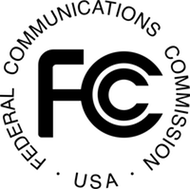 The FCC voted 3-2 (along the usual party lines) to approve the Open Internet Order or as the media refers to it, NET NEUTRALITY. I suppose a set of rules that has brought condemnation from both sides of the argument can’t be all that bad. Consumers received some protections with a non-blocking rule subject to reasonable network management. As expected, the FCC did not approve its third-way approach (Title II reclassification with forbearance of many statutes). And the agency also decided to leave mobile broadband to its own devices, so to speak.
The FCC voted 3-2 (along the usual party lines) to approve the Open Internet Order or as the media refers to it, NET NEUTRALITY. I suppose a set of rules that has brought condemnation from both sides of the argument can’t be all that bad. Consumers received some protections with a non-blocking rule subject to reasonable network management. As expected, the FCC did not approve its third-way approach (Title II reclassification with forbearance of many statutes). And the agency also decided to leave mobile broadband to its own devices, so to speak.
I was most curious about the fate of specialized services, the new category of vaguely defined advanced (or as the Google-Verizon proposal put it “additional”) capabilities that was in the FCC’s original Notice of Proposed Rule Making issued back in late 2009. And which the FCC asked for additional comments again in September 2010.
Anyway, after the FCC’s barrage of questions and stated concerns—most significantly over anti-competitive practices and re-allocation of telecom investments—it ultimately took the completely radical stance of doing nothing.
From the beginning of the Open Internet initiative, the FCC proposed—with lots of input from the usual suspects—a separate neighborhood where more advanced video and voice subscription options would reside. The idea was that the FCC would allow carriers to charge a premium for a better (QoS), richer (more apps, more content) Internet—they held out AT&T U-verse IP video subscription service as an example—in the hope that this policy would spur investments, increase competition, and improve consumer benefits while not hurting the open public Internet.
You can read the FCC’s litany of qualms and questions in the NPRM (see references below), which I excerpted here:
And then in Further Inquiry into Two Under-Developed Issues In The Open Internet Proceeding, the FCC expressed nervousness about broadband providers bypassing the Open Internet with substitute special services, under-investing in plain old network infrastructure, and engaging in anti-competitive conduct. On this last point, the FCC said:
In short: our telecom regulators were worried about exclusive contracts with terms that wouldn’t be available to the rest of the market.
You start grokking the ambivalence (guilt?) of the FCC in opening up a special services Pandora’s box in that AT&T, Verizon, Comcast, Sprint, et. al. would strike exclusive deals with more established content providers (video, music, social networks, search, distributors) or with firms in which they have a financial interest.
This is or should be familiar to the FCC and Congress since we’ve already tried the same experiment with cable programming: initial light regulation and then after complaints from national video programmers against cable operators and their affiliated programmers, Congress intervened in 1992 to effectively prohibit exclusive contracts (see section 628 of the Communications Act).
One Commissioner felt the déjà-vu-ness of all this.
So here’s a shout out to Commissioner Copps: from your Open Internet statement it’s clear you were struggling to not repeat bad policies from the past that would lead to further consolidation on the provider side along with multiple-Internets for consumers. You tried to tighten the definition of broadband access to prevent providers form bypassing it by calling it, say, a special service. These rules were a first baby step, you felt, in the right direction.
Fair enough. I feel your misgivings.
However, the FCC’s final word on specialized services is in tone closer to that of a non-trusting but understanding parent. They will have a “particular focus on any signs that specialized services are retarding the growth or constricting capacity available to broadband” and “monitor the potential for anticompetitive or otherwise harmful effects from specialized services.”
Tough stuff.
Unfortunately, a lot of the FCC’s language on specialized services and exclusive contracts was heavily influenced by one service provider and its Chicago School-style view of monopolies and competition. More on this in a future post.
Related articles
- It’s here: FCC adopts net neutrality (lite) (arstechnica.com)
- FCC Adopts Net Neutrality Rules (telecomlawmonitor.com)
- Commissioner Copps Statement on Open Internet (fcc.gov)
- Notice of Proposed Rule Making – Open Internet (fcc.gov)
- Public Notice:Two Under-Developed Issues (fcc.gov)


